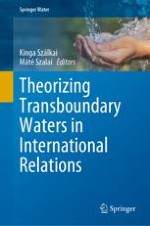
2023 | OriginalPaper | Buchkapitel
1. Introduction: Mixing Water and International Relations Theory
verfasst von : Kinga Szálkai, Máté Szalai
Erschienen in: Theorizing Transboundary Waters in International Relations
Aktivieren Sie unsere intelligente Suche, um passende Fachinhalte oder Patente zu finden.
Wählen Sie Textabschnitte aus um mit Künstlicher Intelligenz passenden Patente zu finden. powered by
Markieren Sie Textabschnitte, um KI-gestützt weitere passende Inhalte zu finden. powered by